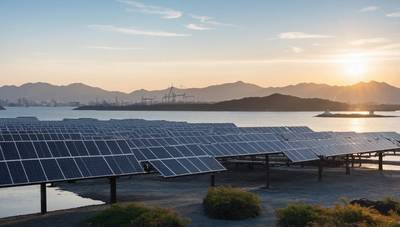Japan adopts new policies on energy, climate and industry through 2040
The Japanese government approved new targets on Tuesday to reduce the country's emissions of greenhouse gases through 2040. It also approved a revised energy policy and updated industrial policies for the same time period.
The measures are aimed at enhancing long-term stability of policy for businesses. They focus on decarbonisation and ensuring stable energy supplies, as well as strengthening industrial capacities to drive economic growth.
Japan's new climate policy aims to cut greenhouse gas emissions from 2013 levels by 60% by 2035, and 73% by 2020, exceeding its previous 2030 target of a 46% reduction.
When the target was first announced, experts and members of the ruling coalition called for even deeper cuts. The world's fifth largest carbon emitter is struggling to reduce its dependency on fossil fuels.
The environment and industry ministers finalised their goal without any changes, citing previous discussions by climate experts.
In order to contribute to global efforts in combating climate change, Japan will submit its new goal, also known as the Nationally Determined Contribution under the Paris Agreement to the United Nations at the end of this month.
By fiscal year 2040 the revised energy policy will aim to have renewables account for 50% of Japan's total electricity mix, while nuclear power contributes another 20%. The country is pushing for clean energy to meet rising demand.
Since the Fukushima nuclear disaster in 2011, Japanese utilities have been unable to restart reactors, and nuclear power will only account for 8.5% of Japan’s electricity by 2023.
The new energy policy removes the goal of reducing nuclear reliance and instead calls for the construction of next-generation reactors.
Cabinet also approved a new national strategy that integrates decarbonisation, industrial policy, and the energy plan through 2040.
The aim is to create industrial clusters that are rich in renewable energies, nuclear energy and other sources of low-carbon electricity.
There are some uncertainties about Japan's policies. The domestic offshore market, which is a major driver of growth in renewable energy, has been hit by inflation and high costs. Mitsubishi Corp was recently forced to review three domestic projects.
The decision of U.S. president Donald Trump to withdraw from the Paris Agreement, and his negative stance towards renewable energy has further clouded the global expansion efforts. (Reporting and editing by Helen Popper; Yuka Obayashi)
(source: Reuters)







